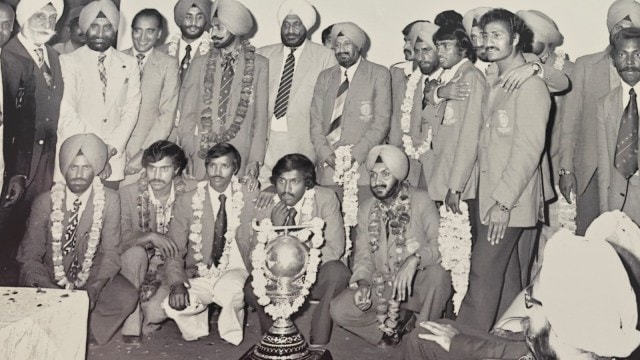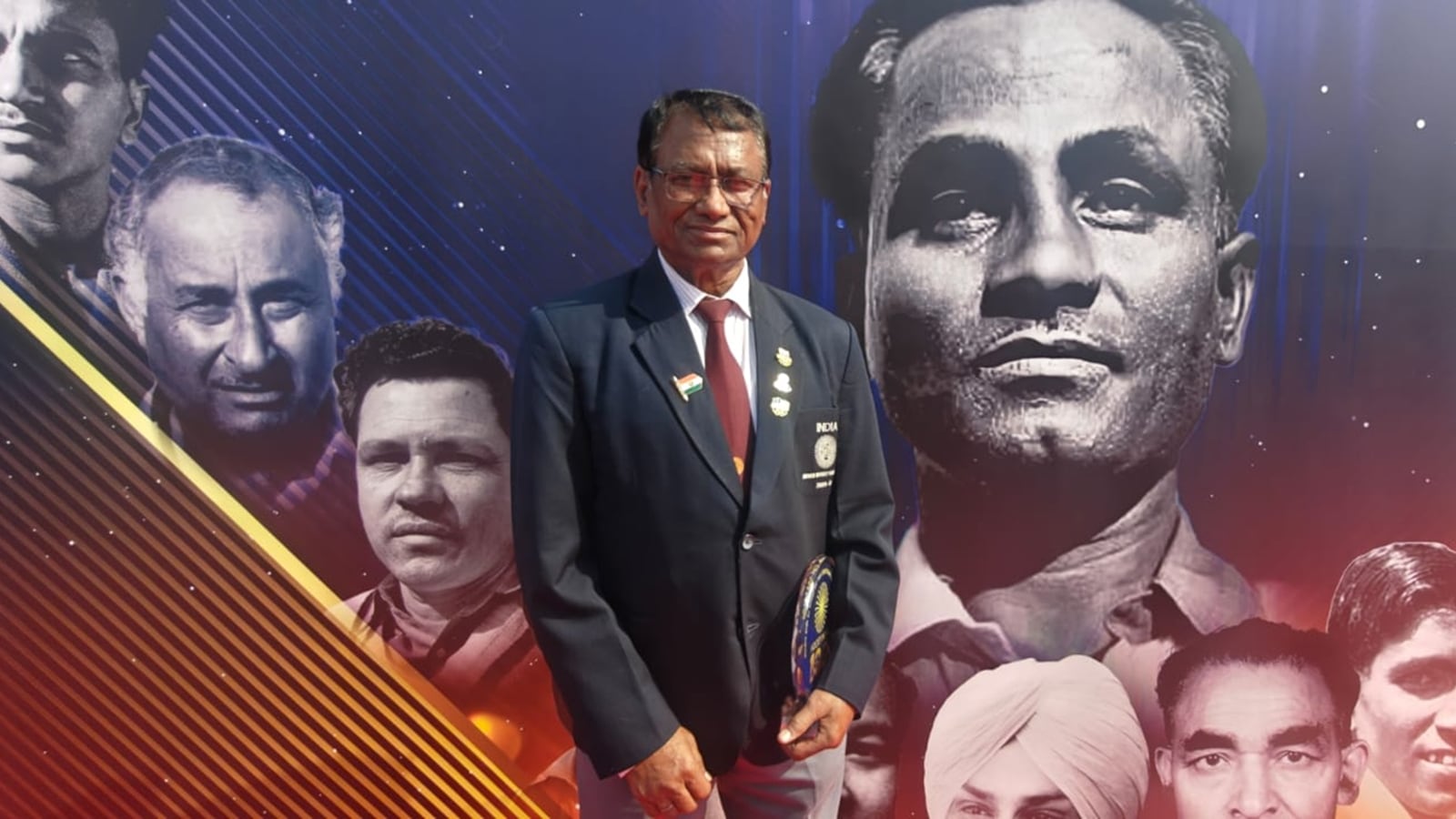Pritish Raj works with sports team at The Indian Express' and is based out of New Delhi. ... Read More
© The Indian Express Pvt Ltd
- Tags:
- Hockey World Cup
Latest Comment
Post Comment
Read Comments
 The 1975 World Cup winning squad. (Photo Credit: Hockey India)
The 1975 World Cup winning squad. (Photo Credit: Hockey India)India has won the Olympic men’s hockey gold medal no less than eight times, but the 1975 World Cup victory has not been repeated in the subsequent half a century. In fact, not once have managed even a podium finish in the 13 editions of the marquee tournament since that day in Kuala Lumpur, despite hosting three of the last four World Cups.
It lends some lustre to the achievement 50 years ago and looking back, two of the main architects of that triumph, Ashok Kumar and Aslam Sher Khan, term the semi-final against hosts Malaysia the toughest encounter.
Facing the home team in front of 50,000 fans at the Merdeka Stadium, India went down twice before an inspired substitution from coach Balbir Singh Senior turned the tables on Malaysia.
“Coach saab told me that he believes I can save the match with six minutes left. He was visibly tense as the match was getting into its final stage,” Khan told The Indian Express on the sidelines of the centenary celebrations in the Capital.
Balbir’s confidence was vindicated within just two minutes of Khan entering the pitch. Ashok won a penalty corner and Khan sounded the board to make it 2-2. There was a fresh injection of energy in the team after the equaliser and it took just two minutes of extra time for Harcharan Singh to score the winner.
“I have scored a lot of goals but the one against Malaysia is my favourite as it was historic,” quipped Khan.
Malaysian paper The Strait Times wrote at the time: “India made a shrewd tactical move in the 64th minute when they trailed 1-2. They brought in ace penalty corner striker Aslam Sher Khan and he scored within two minutes.”
After wading off the Malaysian challenge, a bigger obstacle awaited them in the final — 1972 Olympic silver medallists and arch-rivals Pakistan.
“Pakistan was a force to reckon with at that time and our clashes were always mouth-watering. That is the reason more than 50,000 fans turned up for the final,” recalled Ashok.
Before Shah Rukh Khan popularized the phrase “Bas sattar minute hai tumhare pass” (You only have 70 minutes) in the movie Chak De! India’, something similar was said during the half time of the 1975 Hockey World Cup final.
Trailing 0-1 courtesy a Zahid Sheikh goal in the 17th minute, Ashok told his teammates not to worry.
“Pakistan scored early and our team was on the back foot,” he remembered. “During the interval team talk, I just said that we have 35 minutes left and have to do everything we can. This is the time to show all the hard work we had done.”
 Ashok Kumar, one of two main architects of the triumph. (Express Photo by Pritish Raj)
Ashok Kumar, one of two main architects of the triumph. (Express Photo by Pritish Raj)
In the second half, the team entered the pitch with more determination and got the equaliser in the 46th minute when Surjit Singh sent a vicious shot from a penalty corner past Pakistan custodian Saleem Sherwani. Ashok called the goal the catalyst for the Indian team. “Once the shot from Sujit went in, our body language changed completely. We started playing better,” he said.
Five minutes later, Ashok scored the goal that would give India its only World Cup till day.
“I vividly remember the whole sequence leading up to the winning goal. The short corner comes to Ajitpal Singh and he passes it to me. After that, I dodged two players and passed the ball to John Phillips. I made the run towards the penalty spot and he returned it beautifully to me. I just had to flick the ball and the shot went like a carrom board striker hitting the board and came out while the referee blew the whistle for the goal,” Ashok painted a visual picture of one of the most important goals in Indian history.
The goal was contested by the Pakistanis but The Strait Times quoted referee Vijayanathan, who said, “It was a clear goal. I was in the line of play and saw the ball hitting the inside of the post.”
Fifty years later, that goal remains frozen in time — the only World Cup triumph in Indian hockey history, a feat that has eluded generations of players.


